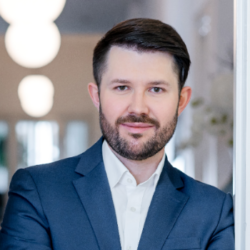Mastering the transformation
Companies have to balance cost optimization, value creation and risk management, under increasingly difficult conditions. Our latest risk management study shows that 90% of companies have been affected by supply chain disruptions in the last 12 months, or have had to procure expensive replacement products at short notice. As if that were not enough, the issue of sustainability adds another dimension that procurement has to address, both in terms of the company’s ecological balance sheet and from a social point of view. Transparency plays a crucial role in supply chain sustainability.
The increasing importance of this balancing act is also reflected in a CPO survey. The results show that although cost optimization and risk management were still identified as the most important issues with 54% each, sustainability follows closely behind with 51%. To be able to balance these sometimes contradictory goals, procurement must undergo an extremely significant transformation.
How can the transformation succeed?
Finding the balance is a company-wide task that can only be successful if management recognizes its importance and defines the most suitable framework for it. Cross-departmental lighthouse projects are ideal for embedding this in the organization and providing an initial sense of achievement.
The Status Quo Can Be Built Upon
departments have invested a lot of energy in optimization. However, they are currently affected by rising material costs (including raw materials), as well as supply bottlenecks. Focusing on short-term savings can often be at the expense of supply chain stability, and can get in the way of partnership-based, long-term collaboration with suppliers.
Sustainability in the Supply Chain
Despite sustainability’s increasing importance, a company’s management team is rarely responsible for it; it is often left to the lower ranks. However, a lack of clear commitment to the environment and society is not sustainable in the long term. Increased transparency in the supply chain and measures such as using green electricity increase costs in the short and medium term, but they add a competitive advantage in the long run
Managers are In Demand
To get the balancing act right, management must create the necessary conditions and kickstart a fundamental transformation process. One of the most important prerequisites is defining the goals that will need to be included later in each area’s planning. This includes highlighting and actively promoting the new priorities within the company.

Tracking Goal Attainment with Company-Wide KPIs
Once the goals are set, cross-functional monitoring is essential. Above all, this should include defining KPIs throughout the company and tracking them regularly. Management must also set the right incentives, including by incentivizing staff purely on the basis of the defined goals and their prioritization.
Meeting the Requirements
All these points clearly demonstrate the key role that management plays in resolving conflicting goals. Procurement can only work effectively and achieve a successful transformation if management defines cross-company KPIs, creates the conditions and provides a clear mandate for procurement.
Read the full article with many more insights in our Supply Management Insights customer magazine.
Here you can download the magazine free of charge:
Fill out the contact form to receive the magazine issue. You will then receive the entire issue by e-mail.
// Preview | Table of contents & text extract



